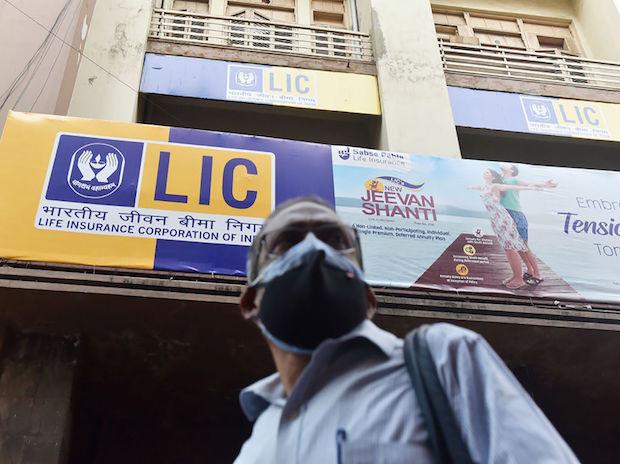LIC's NPAs In Debt Portfolio Reduce, Persistency Ratio Improves In FY21

Ahead of its initial public offering, state-owned Life Insurance Corporation (LIC) has seen a reduction in non-performing assets (NPAs) in the debt portfolio and has improved its persistency ratio, both in the 13th month as well as in the 61st month.
In FY21, gross NPAs of LIC reduced by 39 basis points (bps) to 7.78 per cent from 8.17 per cent a year ago. On the other hand, the net NPAs of the insurer reduced by 74 bps to 0.05 per cent in FY21, indicating that the insurer has provided heavily to reduce its net NPAs to clean up its balance sheet.
The 13th month persistency ratio, which is the proportion of policyholders who continue to pay their renewal premium, in terms of the number of policies has increased to 67 per cent in FY21 compared to 61 per cent in FY20. In annualised premiums terms, the ratio increased to 79 per cent from 72 per cent earlier. Similarly, the 61st-month persistency improved to 48 per cent in FY21 from 44 per cent in FY20 in number of policy terms, and in annualised premium terms, the ratio increased to 59 per cent from 54 per cent.
The total revenue of the insurer increased by 10.7 per cent to Rs 6.82 trillion in FY21 from Rs 6.16 trillion in FY20. Net premiums of the insurer in FY21 were to the tune of Rs 4.03 trillion, up 6.33 per cent from Rs 3.79 trillion in FY20. While first-year premiums fell by 41.4 per cent, renewal premiums rose 8.82 per cent and single premiums were up 25 per cent.
LIC’s profit after tax (PAT) went up by 6.9 per cent to Rs 2,906.77 crore in FY21 and the PAT to total income ratio remained the same at 0.004. LIC’s investment yield for FY21 was 7.42 per cent while it was 7.54 per cent in FY20. Its gross earnings from interest, dividends, and rent in FY21 was a whopping Rs 2.34 trillion, up 8.33 per cent from Rs 2.16 trillion.

Business Standard has always strived hard to provide up-to-date information and commentary on developments that are of interest to you and have wider political and economic implications for the country and the world. Your encouragement and constant feedback on how to improve our offering have only made our resolve and commitment to these ideals stronger. Even during these difficult times arising out of Covid-19, we continue to remain committed to keeping you informed and updated with credible news, authoritative views and incisive commentary on topical issues of relevance.
We, however, have a request.
As we battle the economic impact of the pandemic, we need your support even more, so that we can continue to offer you more quality content. Our subscription model has seen an encouraging response from many of you, who have subscribed to our online content. More subscription to our online content can only help us achieve the goals of offering you even better and more relevant content. We believe in free, fair and credible journalism. Your support through more subscriptions can help us practise the journalism to which we are committed.
Support quality journalism and subscribe to Business Standard.
Digital Editor
Stablecoin The Future Of Currency?
The payments system is undergoing a quiet but consequential shift. What was once the exclusive preserve of central banks... Read more
BoE Loosens Capital Rules
The Bank of England has taken a significant step towards easing post-crisis regulation by lowering its estimate of the c... Read more
Monzo Looks For US Banking License
Monzo is preparing a renewed push to secure a US banking licence, four years after abandoning its first attempt when tal... Read more
Crypto Firms Push Into US Banking
America’s cryptocurrency companies are scrambling to secure a foothold in the country’s traditional banking system, ... Read more
Parallel Banking: Stablecoins Are Now Global
Parallel Banking: How Stablecoins Are Building a New Global Payments SystemStablecoins—digital currencies pegged to tr... Read more
JPMorgan Deploys AI Chatbot To Revolutionize Research And Productivity
JPMorgan has deployed an AI-based research analyst chatbot to enhance productivity among its workforce, with approximate... Read more

